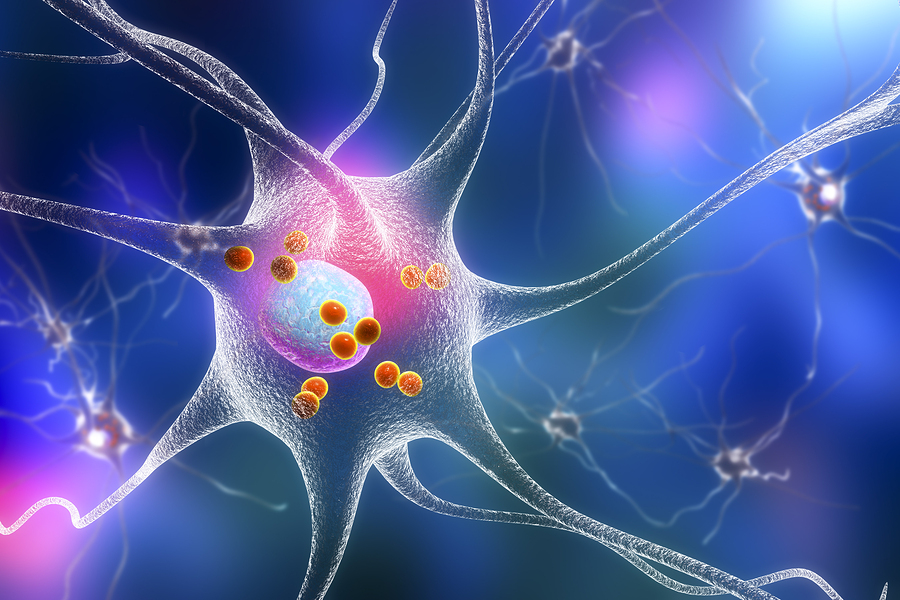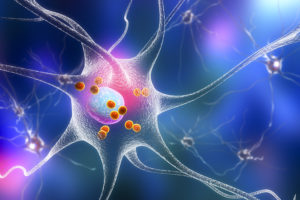
Brain Injury and the Risk of Parkinson’s and Dementia
 Traumatic brain injuries can cause many problems, some of which may manifest years later and result in severe debilitation. Some individuals who suffer such injuries require constant care for the rest of their lives.
Traumatic brain injuries can cause many problems, some of which may manifest years later and result in severe debilitation. Some individuals who suffer such injuries require constant care for the rest of their lives.
Now more than ever, the general public understands the risks and long-term health consequences that accompany repeated concussions. However, even a single, mild head injury can result in major, long-term brain damage, including doubling the risk of dementia and a 50 percent increase in the risk for Parkinson’s disease in the injured individual.
The Connection
Mild traumatic brain injuries increase an individual’s secretion of alpha-synuclein, a protein associated with Parkinson’s disease. While researchers don’t fully understand the connection, alpha-synuclein is associated with the formation of Lewy bodies, which are key to the neuronal dysfunction of Parkinson’s. Many researchers believe that traumatic brain injuries, even mild ones, cause an injured individual’s brain to produce too many waste proteins or to prevent them from being cleared out. Unfortunately, many traumatic brain injuries go undiagnosed, as many patients, particularly children, never seek medical attention because they fail to recognize the severity of their injuries.
One study of soldiers showed that 2.6 percent of veterans who had no documented brain trauma—which is common among veterans—developed dementia; whereas 6.1 percent of those who suffered mild injuries and 9.8 percent of those who suffered serious injuries developed the disease. Again, these statistics do not account for unreported injuries, and there is some evidence that mild injuries can be caused by even minor impacts or shocks. While other risk factors and causes for both dementia and Parkinson’s exist, including genetics, it is likely that head injuries—however severe—increase the risk.
Prevention
The best way to avoid the negative consequences of traumatic brain injuries is to prevent head injuries entirely. While researchers don’t fully understand the relationship between head injuries, dementia, and Parkinson’s, the best ways to prevent adverse health effects include:
- Wearing appropriate protective headgear when engaging in sports or recreational activities. Don’t use a helmet designed for one activity while engaging in a different activity (for example, don’t use a bicycling helmet for horseback riding). Helmets that are involved in a fall should be replaced, as they are likely damaged.
- Wearing a seatbelt every time you travel in a motor vehicle.
- Childproofing your home.
- Removing tripping hazards and using non-slip mats in the bathroom.
- Not diving in shallow or above ground pools.
Additionally, if you or a family member sustains a concussion or minor head injury, seek medical attention immediately. Following your accident, you should rest for several days, abstain from alcohol, and avoid putting yourself in a position that may increase the risk of sustaining another head injury. Although taking these precautions will help reduce long-term complications, it may be difficult to get patients to actually rest, particularly young athletes.
Properly report and record all head injuries so that doctors can monitor and treat any long-term effects. One issue with tracking both the short term and long term effects of head injuries is that doctors in different disciplines often don’t collaborate. For example, military doctors and sports doctors generally do not share observations; consequently, injuries and their effects are often only tracked in very specific contexts.
People who have suffered a moderate or severe traumatic brain injury should avoid other lifestyle decisions that may increase their risk of long-term health issues, including:
- Smoking
- Lack of exercise
- Obesity
- Poor diet
- Excessive exposure to herbicides and pesticides (consider using natural methods of pest control in your garden)
Overall, the best way to reduce your risk of both dementia and Parkinson’s is to engage in regular aerobic exercise, particularly for men, who face a higher risk of Parkinson’s. Furthermore, some studies have indicated that drinking green tea regularly may reduce an individual’s risk of developing Parkinson’s.
Monitoring Symptoms
As discussed above, we cannot overemphasize the importance of monitoring anyone who has sustained a head injury—however minor. While doctors can neither fully treat or cure Parkinson’s or dementia, early detection can help control the symptoms and extend an affected individual’s quality of life. While both chronic, progressive diseases have somewhat mystified medical experts, scientists continue to conduct substantial research.
The need for ongoing monitoring and the heightened risk of permanent disease increase the long-term cost of a brain injury, and you should take this into account when calculating your damages. While you may not be able to recover additional compensation for an injury that occurred decades ago if you suddenly develop a permanent disease, you can include the added stress of future complications in your damages calculation.
Both Parkinson’s and dementia are long-term conditions from which an individual never recovers, so if you receive a settlement after a traumatic brain injury, consider putting some of it aside for additional support down the road, regardless of the injured individual’s condition immediately following the accident. Proper compensation can help ensure that the injured individual sustains a high quality of life for as long as possible and can help reduce the financial burden on the spouse or other family.
Call the Dolman Law Group if You Suffered a Brain Injury
At the Dolman Law Group, we have significant experience representing individuals and families following accidents that result in traumatic brain injury. We know that recovery can be a long road, and that some individuals may never recover or may develop new diseases—such as Parkinson’s or dementia—years later. Our experienced personal injury attorneys frequently represent individuals with traumatic injuries that have resulted from auto, slip and fall and sporting accidents.
Although we cannot guarantee a favorable result in your specific case, we know how to ensure that injured individuals receive adequate compensation to cover the full cost of their injuries. If you or a loved one has suffered a traumatic brain injury due to the negligence of someone else, call us today at (727) 451-6900 or contact us online, to schedule a free consultation.
Dolman Law Group
800 North Belcher Road
Clearwater, FL 33765
(727) 451-6900
https://www.dolmanlaw.com/florida-brain-injury-lawyer/
Google+




